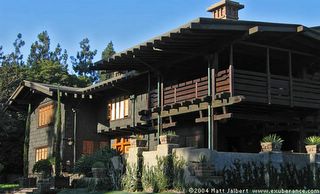
Ironically, this beautiful home would be considered 'unsustainable' under Auckland Regional Council's 'East-German' 'Plan Change 6,' because it "undermines public transport" but almost compulsory in some of Auckland City Council's Heritage Zones -- but then only in seriously watered down form, designed and drawn up on vellum, by an approved Heritage Architect (using Jeremy Salmond would get you to the top of the council's list), and only with a Resource Consent .
Be nice to have a choice about the houses we build on our own property, now wouldn't it? Good luck with that.
2 comments:
Actually, to be fair to Owen, he tipped me off about the Plan Change 6 crap, to which he's absolutely opposed.
It's only the RMA on which he has a blind spot.
So many share this blind spot.
If there was no RMA councils would use the LGA which gives them greater and wide ranging powers than the RMA. The RMA presently restrains them.
That is why Smart Growth and the like are prepared as Community Plans under the LGA.
If we repealed the RMA we would NOT revert to common law.
But even if we did – consider this.
Common law is only case law and since about 1907 New Zealand has had some form of land use planning legislation including the Town and Country Planning Act which preceded the RMA.
Indeed many of the greatest abuses of the RMA are the result of judges refusing to recognise that (for example) the RMA does not say anything about protecting productive farm land. But the judges decidied that because this was such a strong mandate under the T and CP Act it must have meant to do so. Hence we have district plans which subdividing farm land to form more than two new lots a prohibited activity. (Waikato).
The only way forward is to reform our land use regulation to promote liberal values and establish property rights and the clear right to compensation, and to promote tradeable water rights and so.
The RMA (which was intended to promote such reforms) provides a framework to do this. But repealing it would be greeted with absolute joy and delight by the landgrabbers and central planners.
Read the LGA and the RMA and compare their powers.
Post a Comment